84 F. high in the Twin Cities Sunday.
82 F. average high on August 10.
77 F. high on August 10, 2013.
.07" rain at MSP International as of 10 PM.
August 10 in Minnesota Weather History:
1945: Downpour over Red Wing. Nearly 8 inches of rain fell.
1899: A lightning bolt from "clear skies" destroys a storefront in Fisher, Polk County.
Freeze Frame
I'm
still picking sand out of my shoes after the latest up north getaway, a
perk I'll enjoy into autumn. If I had a magic machine and could freeze
time it might be in August or even September, the most underrated month
of the year.
We've lost 1 hour and 20 minutes of daylight since
June 21; the sun as high in the sky as it was on May 1. The upper
atmosphere is still relatively warm, but temperatures are cooling
slightly at the surface. That means a more stable atmosphere, a much
lower risk of severe storms than June - even the first wisps of early
morning fog as nights lengthen, harbingers of fall to come.
Its
been a pretty tame summer. Based on cooling degree days since June 1
we've saved about 8 percent cooling our homes, compared to average.
Please wake me when our weather becomes average.
Fresh Canadian
exhaust chases any straggling T-showers into Wisconsin as skies clear
and dew points tumble. A comfortable week is shaping up, Thursday
showers brushing southwest Minnesota, but a dry sky prevails into next
weekend, when 80s return.
Summer's lazy this year, coming late -
as if Mother Nature time-shifted her DVR and forgot to turn up the heat.
The GFS model hints at 90s by late August - it would be premature to
write off summer just yet.
Late Summer Hot Spell?
I hesitate calling it a heat wave, at least not yet. I want to see a
few more model runs, but the GFS model is hinting at a few 90s by the
middle of next week, spilling over into the last week of August. It
would be ironic if some of the hottest weather of summer, a summer than
hasn't been all that hot, came in late August, two months after the
Summer Solstice, but Mother Nature may be in an ironic mood this year.
A Thundery Puff of Canadian Air.
The leading edge of cooler air (and much lower dew points) sparks heavy
thunderstorms from the Great Lakes and Ohio Valley into the Mid
Atlantic region by Tuesday; WRF guidance hinting at some isolated 3"+
amounts with this cool frontal passage. 60-hour accumulated rainfall
animation: NOAA and HAMweather.
Comfortable - Then Not So Comfortable.
Extended model guidance shows a dip in temperature and humidity levels
(measured in absolute terms via dew point, the lower graph) into
midweek. A weak disturbance may brush Minnesota, especially southwest
counties, with a few midweek T-showers, but there's little doubt we'll
warm up into the 80s again by late week, a potentially fine weekend
shaping up with 80s spilling over into most of next week. Again, don't
write summer off just yet.
15 Years Later, Utahns Remember Tornado That Ripped Through Downtown Salt Lake City. The Deseret News
has a look back at what, on paper, seemed nearly impossible before
August 11, 1999 - an EF-2 tornado in downtown Salt Lake City. Here's an
excerpt: "...
It took just the right, unique type of storm and
setting," he said. "But what it did is it kind of woke up Utahns to
tornadoes." Previously, experts thought it was impossible for a storm to
develop between a 9,000 and 1,100 foot mountain range, Eubank said.
"The storm literally just developed right over the valley." The F2
tornado killed one person, Allen Crandy, 38 of Las Vegas when debris hit
his head. At least 81 people were injured, the tents collapsed at the Outdoor Retailer Show, and at least 300 homes were damaged..."
Photo credit above: "
One
section of temporary exhibition space at the Salt Palace Convention
Center set up to host the Outdoor Retailers Show was completely
destroyed and many windows in the Wyndham Hotel (now the Radisson) were
blown out as a rare and sudden tornado swept through downtown Salt Lake."
Major Storms Hit Hawaii After Lawmakers Raid Hurricane Fund. Here's an excerpt of a head-scratcher of a story, courtesy of watchdog.org and
sayanythingblog.com: "
As
Hawaii feels the brunt of two hurricanes this week, residents believe
any substantial damage could be alleviated by the state’s $126 million
hurricane relief fund. But that well has nearly run dry after the state
Legislature snatched the funds to balance the budget in 2011. The fund
was established in 1993, shortly after Hurricane Iniki slammed into the
islands of Oahu and Kauai on Sept. 11, 1992. That Category 4 hurricane,
the most powerful storm to ever hit Hawaii, killed six people and caused
$1.8 billion in damage. More than 1,400 homes on Kauai were destroyed
and another 5,000 homes severely damaged in the 145-mph winds..."
Why Are Hurricanes Rare In Hawaii? Cliff Mass
has an informative, timely article about hurricane frequency in Hawaii
and why they are the exception and not the rule; here's an excerpt: "...
The
main reasons: the water temperatures are generally too cool and there
is often too much vertical wind shear, the change in horizontal winds
with height. Cool sea surface temperatures. Anyone who has taken a
vacation in Hawaii knows the story. The waters of the Pacific are
relatively cool and you know it when you snorkel or swim. 70s are
typical, ten degrees or more cooler than the Caribbean for example..."
The U.S. Firefighting Budget Is Almost Gone, But The Forests Are Still Burning.
Grist has the story; here's the intro: "
On Tuesday, Agriculture Secretary Tom Vilsack said we’ll likely use up our annual budget for fighting wildfires by the end of August,
months before the fiscal year ends in October. As apocalyptic as the
fires that have raged in California, Oregon, Washington, and Idaho this
year may seem, it isn’t the first time we’ve found ourselves in this
lamentable spot. In fact, it’s the seventh time we’ve burned through the
budget over the past twelve years. And yet, the budget has stayed the
same..."
Review: "Into The Storm" Makes Up For In Action What It Lacks in Science. The Washington Post's
Capital Weather Gang
has some thoughts regarding special effects, and whether the movie is a
worthy successor to the 1996 hit "Twister". Here's the intro: "
Into
the Storm is a summer action film with riveting severe weather twists
and turns. It builds on former disaster movie successes, adding on
state-of-the-art special effects. While the film’s tornado sequences are
thrilling, the science falters – a distraction for anyone who knows a
bit about weather..."
Image credit above: "
A scene from Into the Storm." (New Line Cinema/Village Roadshow Pictures)
How YouTube and Internet Journalism Destroyed Tom Cruise, Our Last Real Movie Star.
LA Weekly
has a fascinating story of Tom Cruise, and how the "jumping up and down
on Oprah's couch" never, ever happened. The perils of viral videos
taken out of context. Here's an excerpt: "...
Cruise's talent and
clout were responsible for an unparalleled string of critical and
commercial hits. We gave that up for a gif. Like an insistent heart
monitor, the box office numbers continually prove Cruise is alive, but
even he seems to have been convinced of his own premature demise. He'd
finally opened up and been harshly punished. Cruise closed ranks,
retreating not just from the press but also from his own personal career
ambitions. He made fewer films, tried fewer challenges. He wanted us to
love him again..."
TODAY: Peeks of sun, cooler breeze. Winds: NW 10-15. High: 77
MONDAY NIGHT: Clearing and noticeably cooler. Low: 54
TUESDAY: Sunny and very comfortable. Dew point: 48. High: 78
WEDNESDAY: Plenty of sun, still pleasant. Wake-up: 58. High: 80
THURSDAY: Less sun, T-showers southwest Minnesota. Wake-up: 63. High: 79
FRIDAY: Partly sunny, storms stay south. Wake-up: 64. High: 82
SATURDAY: Warm sunshine. Dew point: 60. Wake-up: 61. High: 83
SUNDAY: Hanging onto summer. Blue sky. Wake-up: 60. High: 84
Is a one-way mission insane? Here’s how Mason Peck responded to the question:
“There are many motivations for becoming one of the first settlers on Mars, none of them insane in my opinion. These include:
- “A
noble sense of self-sacrifice, if you believe that extending human
presence into the solar system will help ensure the survival of the
species."
- “A desire for the immortality that comes with fame,
despite the risk to life and limb. In some sense, putting yourself at
risk helps ensure your influence on the history of humanity will outlive
your physical being."
- “A desire for personal accomplishment, or
overcoming a challenge, the same sort of thing that drives people to
join expeditions to the summit of Mount Everest."
- See more at: https://community.mars-one.com/blog/is-a-one-way-journey-wrong#sthash.8TpgtvHE.dpuf
Climate Stories...
Agriculture Must Engage In Climate Change Discussion.
The Des Moines Register has an Op-Ed focused on the need for the agricultural sector to become more resilient; here's an excerpt: "...
There
will be bumps in the road in making these changes, bumps compounded by
the uncertainties of evolving climate. That is why it is important to
start this conversation now and identify the important policy choices we
face. Policies that will help farmers feed the world despite a changing
climate include investment in innovation; a focus on maintaining open
borders to allow food to flow freely from areas of surplus to areas of
need; and rapid, responsible dissemination and adoption of biotechnology
and other agricultural innovations to improve production without
harming the environment..."
Fools At The Fire.
Some of the same people demanding less government will be the first to
have their hands out for relief after the next mega-fire or mega-flood.
Ironic huh? Here's a clip from an Op-Ed at
The New York Times: "...
Smart
foresters had been warning for years that climate change, drought and
stress would lead to bigger, longer, hotter wildfires. They offered
remedies, some costly, some symbolic. We did nothing. We chose to wait
until the fires were burning down our homes, and then demanded instant
relief. We have a Congress that won’t legislate, an infrastructure
that’s collapsing, a climate bomb set to go off. We won’t solve the
immigration crisis even as desperate children throw themselves in the
Rio Grande. Income inequality threatens to make a great democracy into
an oligarchy..." (Photo credit: NOAA).
Bet Against The Seven Horsemen of the Apocalypse. (Smart)
companies are beginning to plan ahead, for not only climate change but
water scarcity and global food challenges. Eric Roston has an
interesting story at
Bloomberg; here's an excerpt: "
You
know they're out there. Even people still squeamish about one or
another global mega-risk must, deep in their seats of reason, twitch at
the thought of these things taking a toll:
- Climate change.
- Water scarcity.
- Vast urban waste.
- Food insecurity.
- Public health burdens.
- Economic inequality.
- Demographic cliffs.
These
are notorious, fuzzy, amorphous risks that belong to everyone and
therefore to no one. That's why unabashed leadership in the fight
against them is so hard to come by in either the civic sphere or private
sector. These problems can seem infinite, and, what's worse, can be
addressed only in what seem like infinitesimal measures. Who wants to
own the global food insecurity problem? Any takers? Why even bother,
right?..."
Map credit above: "
WATER
SCARCITY--Global water demand is projected to increase by some 55
percent by 2050. More than 40% of the global population is projected to
be living in areas of severe water stress through 2050, according to the
2013 UN World Water Development Report. Source: Executive Summary, UN
World Water Development Report."
"Not a Mystery" Why Republicans Are Blind Facts on Climate Change. Not all Republicans, but many still deny the science - here's a snippet of an Op-Ed at
The Pittsburgh Post-Gazette that caught my eye: "...
It
is not a mystery why Republicans are more prone to be misinformed than
independents and Democrats. Many national Republican leaders and
numerous conservative news sites deny the existence of man-made climate
change and promulgate the fiction that there is little agreement among
scientists on the matter. The reason: To admit that climate change is at
least partially caused by human behavior would require action to
curtail greenhouse gases. And only government can enforce such action.
But that approach flies in the face of an anti-government ideology that
has permeated much of the Republican Party..."
Climate Change Impacts Northwest Iowa. Here's an excerpt of a story at
The Spencer Daily Reporter, describing reality, not theory: "...
Veteran
scientist and educator Rick Lampe says that climate change is a fact of
life -- as much so in Storm Lake as at the eroding polar ice caps. "We
see it all the time and yet we don't recognize it," he says. Locally,
the change is dramatic in alternating periods of drought and extreme
rains, which have become much more commonplace in the past few years, he
says. "When you are having a 'hundred years' weather situation every
other year, you have to start paying attention," he says. The issue is
not as sudden as most people believe, the recently-retired Buena Vista
University professor says..."
Swimming Against The Rising Tide.
The New York Times
has an Op-Ed that's worth a read, focusing on what secular climate
activists can learn from Evangelical Christians; here's a clip: "...
I
know to be suspicious of apocalyptic thinking, my own and everyone
else’s. Numb denial of global warming will not do, but neither will
helpless fear. I worry that among believers and deniers alike, blame is a
way of avoiding a deeper problem, the problem of scale: How do we
bridge the distance between our own seemingly insignificant lives and
actions and the scale of climate change, so global and so slow?..."
These 6 States Are Most Dependent on Oil, Gas and Coal Production. Here's an excerpt from an interesting story at
Vox: "...
North Dakota has seen the biggest boom, in large part due to tight oil production
in the Bakken region. In 2003, energy production made up just 2 percent
of the state's economy. Now it makes up 14 percent. (That's also a big
reason why North Dakota's unemployment rate is now a minuscule 2.7
percent.)..."
Graphic credit: Energy Information Administration.


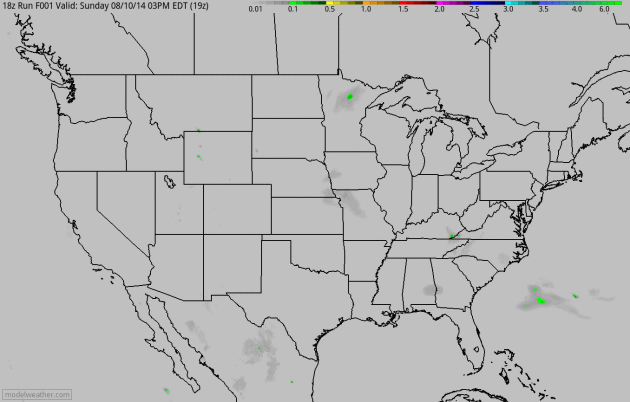
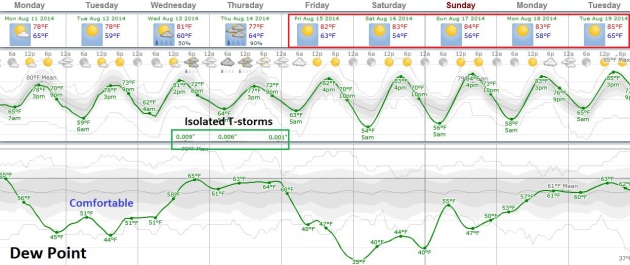
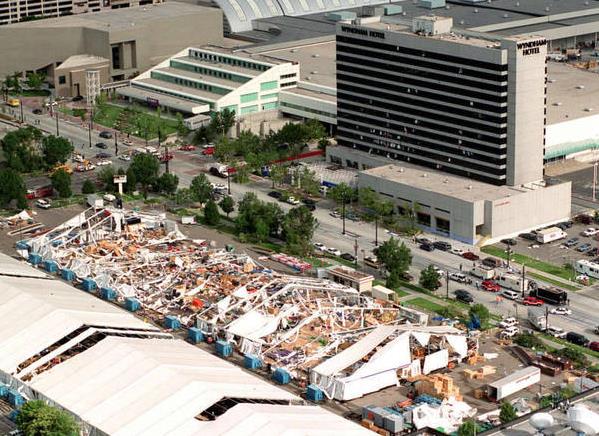
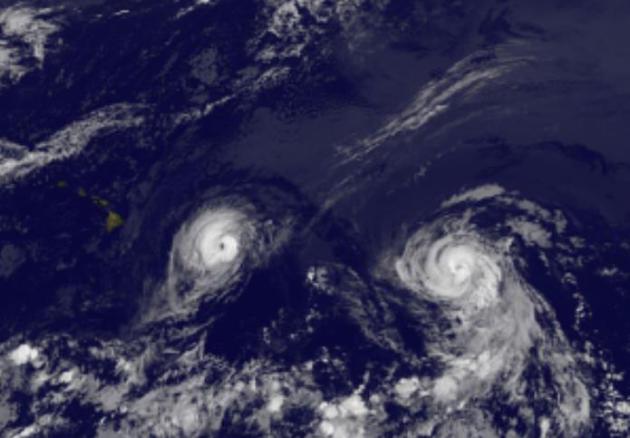
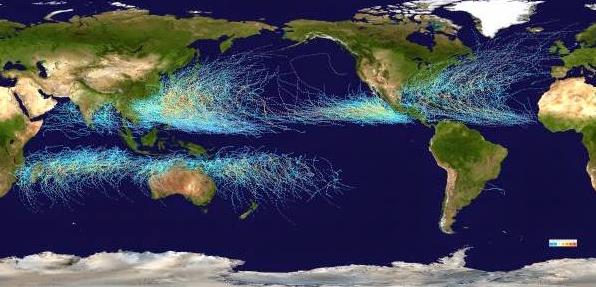
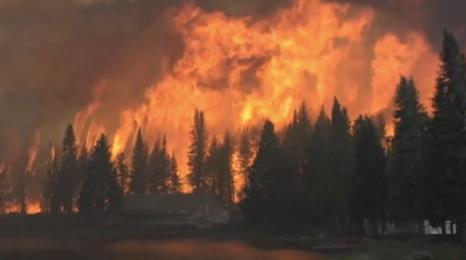
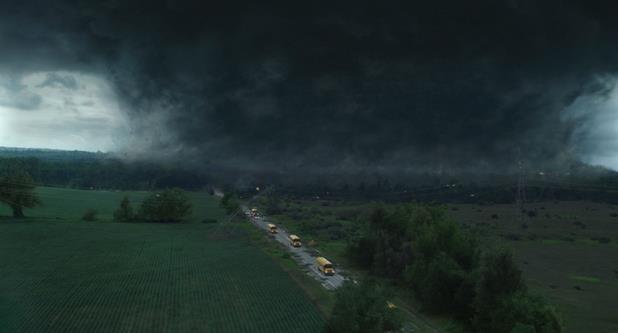

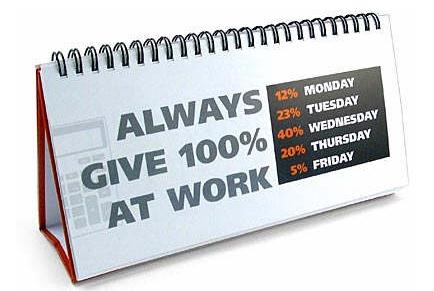


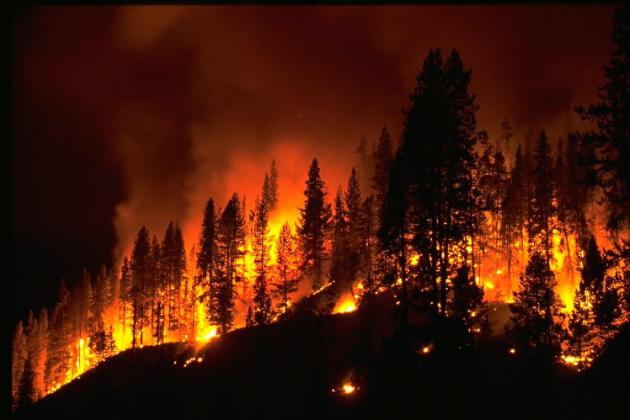
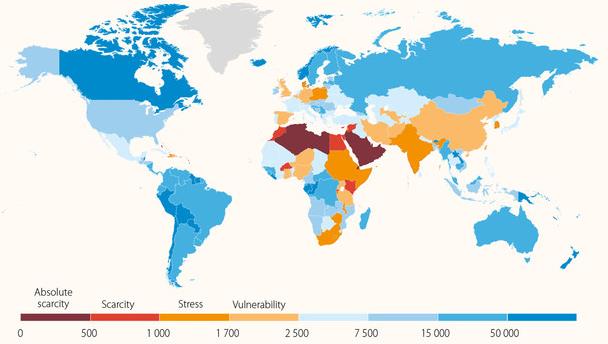
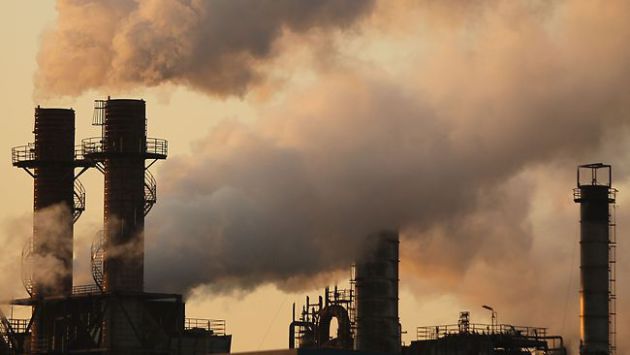


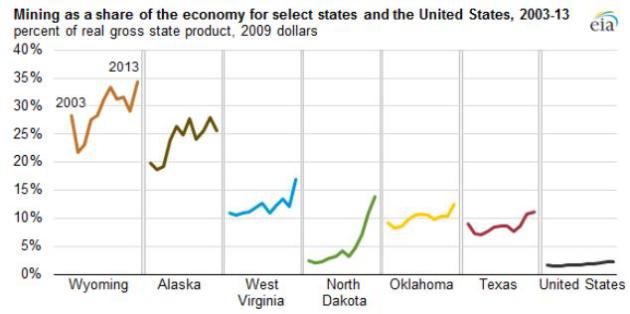
Thanks for warning all the travelers and providing necessary information.
ReplyDelete